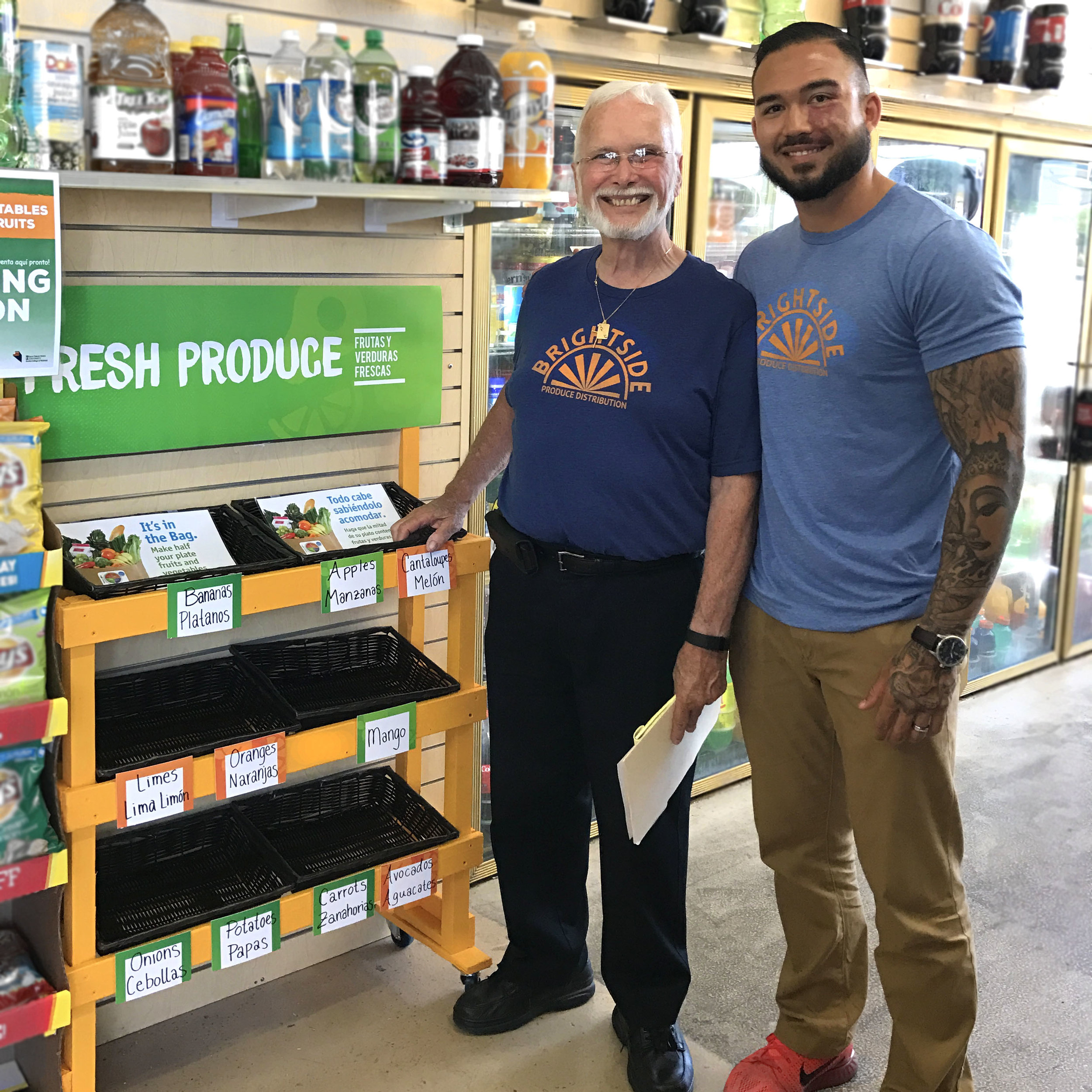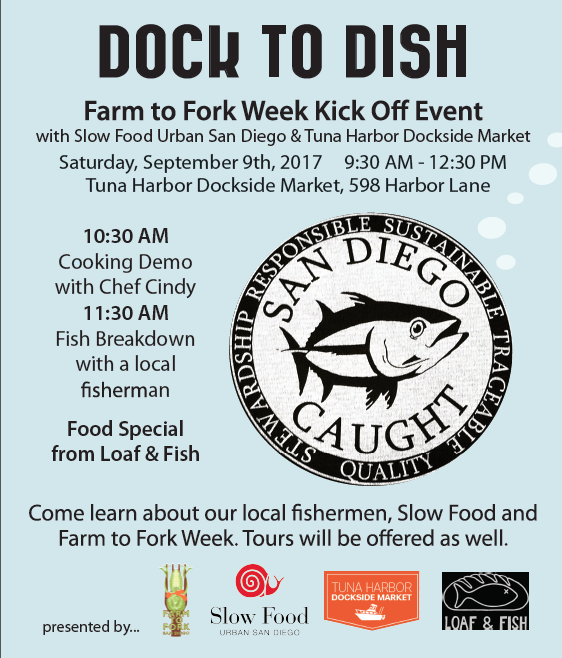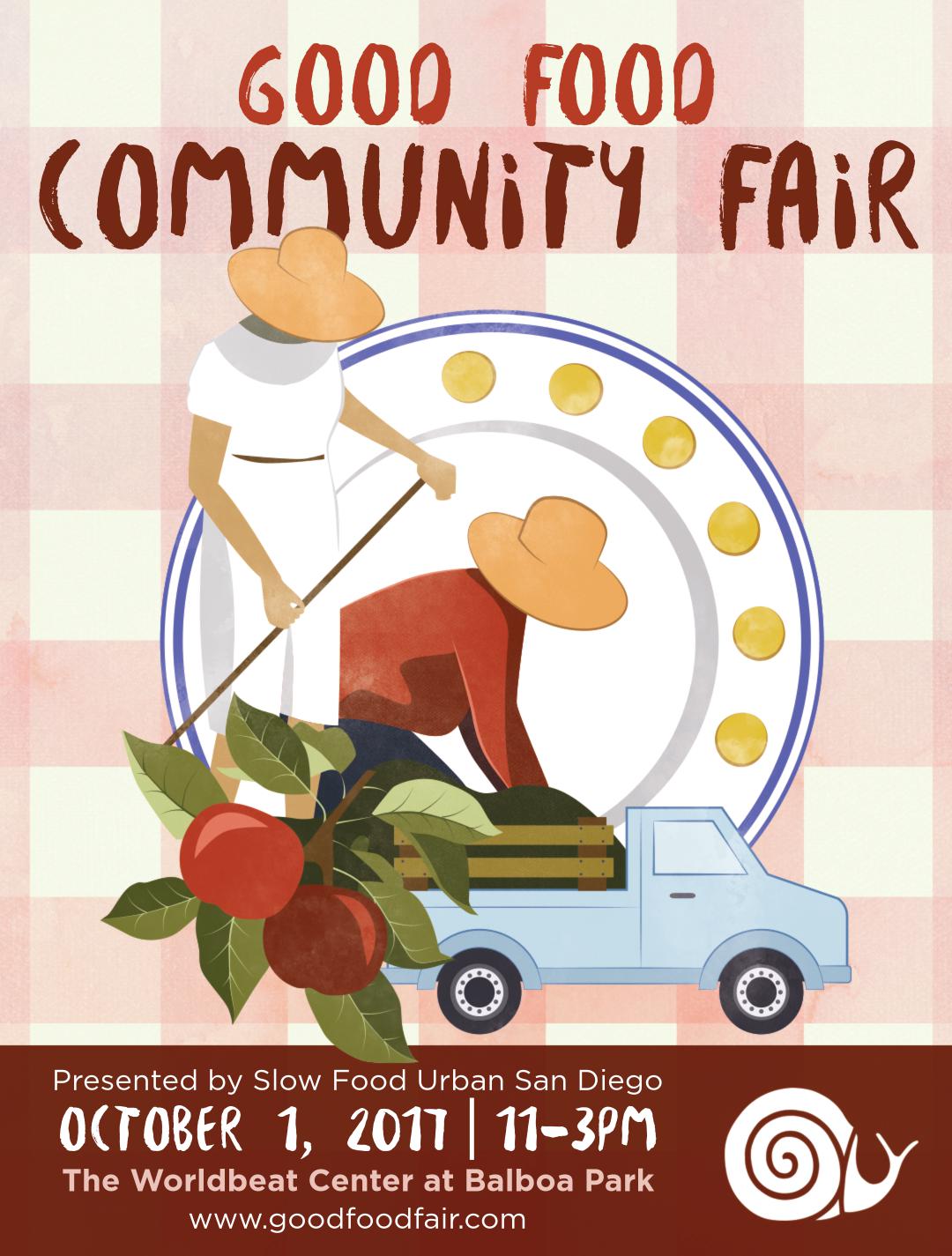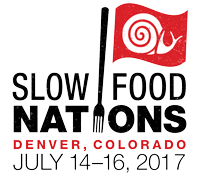Are you organized, passionate and willing to help with the nitty gritty of accomplishing Good, Clean & Fair food for all? Then we want you! Seeking detail-oriented, energetic leaders to round out the Slow Food Urban San Diego Board. All positions are voluntary. Submit your application, including a resume/bio and letter of interest here.
Applications are open on a rolling basis. Apply as early as possible. The first round of interviews will be scheduled for the evening of December 7, 2017. The final application deadline is 11:59 p.m. on December 13, 2017.
To be eligible, you must have or obtain a Slow Food membership. Terms of office are two years, with reelection possible for additional terms but not to exceed eight years of service before a one year hiatus. About half our positions are open each year. Candidates elected will start in January 2018 and serve through December 2019 in the positions. All positions require leadership, organization and communication skills as well as initiative.
Position Descriptions:
Chair
The Chair liaises with the Regional Governor, the Slow Food USA national office, and other Chapter Leaders in the region. The Chair creates meeting agendas, runs general meetings, acts as one of at least two signing authorities for the Chapter bank account, acts as primary contact for the group, oversees the activities of the Chapter, and ensures that the Chapter is meeting all annual requirements. Co-Chairs may share the above duties. Candidates must have served on the Slow Food Urban San Diego Board for a minimum of one year.
Vice Chair
The Vice Chair works with the current Board Chair to administrate the Slow Food Urban San Diego Board of Directors and maintain chapter standing. Candidates must have served on the Slow Food Urban San Diego Board for a minimum of one year and agree to assume the Board Chair position in January 2019 for at least a one-year term.
Secretary
The Secretary records minutes during monthly Board Meetings, administers annual elections, coordinates a schedule of interviews for Board positions, and provides some administrative support to the Board.
Treasurer
The Treasurer maintains the books for the organization, handles expense reimbursements, accounts payable, and annual filings. The treasurer is responsible for leading the budgeting process and providing financial guidance to the Board, as well as presenting a Treasurer’s report at monthly board meetings. A working knowledge of Quickbooks is desired but training by the outgoing treasurer will be provided if necessary.
Education Committee Chair
The Education Committee Chair provides the San Diego community with education and enrichment opportunities that connect students of all ages to Good, Clean and Fair food. The Chair supports existing programs, including Edible San Diego for Kids Publication, Taste Education Programs, as well as educational programming for families and adults. The Chair also liaises with Slow Food University Chapter(s). The Chair oversees the Education Committee, which meets monthly, striving to engage and include Slow Food Urban San Diego’s membership as much as possible.
Food Justice Committee Chair
The Food Justice Committee Chair collaborates with San Diego food access/security organizations,environmental and other organizations to promote sustainable agriculture, urban farming and access to good, clean and fair food for ALL. The Chair oversees the Food Justice Committee, which meets monthly, striving to engage and include Slow Food Urban San Diego’s membership and community members/leaders as much as possible.
Farm Liaison/Ark of Taste Chair
The Farm Liaison/Ark of Taste Chair works to link Slow Food Urban San Diego with the local farming community and recommends strategies for the Chapter to advocate for and support farmers. The Farm Liaison sits on the Slow Food California Ark of Taste Committee (~2 conference calls a month and review of applications to the Ark) and to support Ark of Taste Programming and recognition in San Diego. The Farm Liaison may form a committee.
Communications Committee Chair
The Communications Committee Chair facilitates Chapter communications through website maintenance, newsletters, social media and networking, and ensures consistency of communications to members, media and the community. The Communications Chair oversees the Communications Committee and supports the Chapter Co-Chairs in tracking Slow Food California, Slow Food USA and Slow Food International activities of interest and in sharing SFUSD activities with other Slow Food entities. The Committee oversees marketing and getting the word out regarding Chapter activities. Strong writing, editing and communications skills are required for success in this position.
Good Food Community Fair Co-Chair
The Good Food Community Fair Co-Chair is an organized event planner that is passionate about building community around good, clean & fair food for all. The Co-Chair will work with the current Good Food Community Fair Chair to support committee meetings and organize/manage logistics, fundraising opportunities and special programming for the annual Good Food Community Fair. The Good Food Community fair is a gathering of good, clean & fair organizations and a celebration of local food and craft drinks with cooking demos, art, discussion panels and more. For more information visit: http://goodfoodfair.com/
Fund Development Chair
The Fund Development Chair creates, maintains and updates an inventory of resources of potential donors and sponsors; develops and implements fundraising campaigns to be supported by the Board; and applies for grant as appropriate. The Fund Development Chair may form a committee.
Seafood Liaison
The Seafood Liaison works to link Slow Food Urban San Diego with the local fishing community and recommends strategies for the Chapter to advocate for and support fishermen. The Seafood Liaison may form a committee.
Volunteer Coordinator
The Volunteer Chair coordinates Slow Food Urban San Diego outreach at community events, including soliciting for volunteers, organizing shifts and communicating w/ the event organizer to arrange for logistics. Events may include Slow Sips, festivals and fairs, and local food and farm related events hosted by other mission-aligned organizations.
Membership Coordinator
The Membership Coordinator oversees all things membership. S/he maintains and updates the Chapter’s membership list and leads in recruiting and retaining members; reports membership status at each board meeting; organizes membership drives and leads in planning Slow Food Urban San Diego’s “Slow Sips” events. The Membership Coordinator also maintains relationships with our Member Benefit Partners and continues to build the Member Benefit Program. The Membership Coordinator may develop and coordinate additional programs to build the Chapter membership and may form a committee.

























